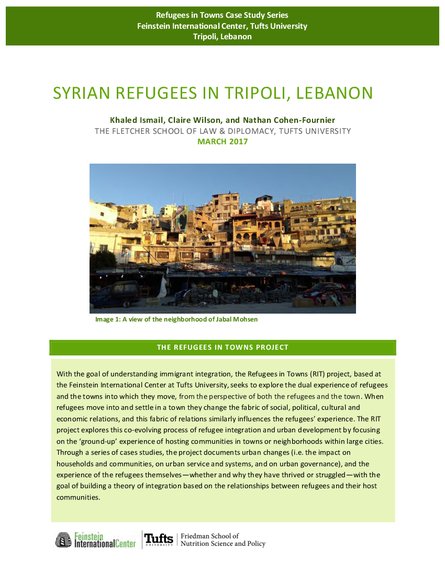
With the goal of understanding immigrant integration, the Refugees in Towns (RIT) project, based at the Feinstein International Center at Tufts University,seeks to explore the dual experience of refugees and the towns into which they move, from the perspective of both the refugees and the town. When refugees move into and settle in a town they change the fabric of social, political, cultural and economic relations, and this fabric of relations similarly influences the refugees’ experience. The RIT project explores this co-evolving process of refugee integration and urban development by focusing on the ‘ground-up’ experience of hosting communities in towns or neighborhoods within large cities. Through a series of cases studies, the project documents urban changes (i.e. the impact on households and communities, on urban service and systems, and on urban governance), and the experience of the refugees themselves—whether and why they have thrived or struggled—with the goal of building a theory of integration based on the relationships between refugees and their host communities.
Resource collections
- UN Habitat - Urban Response Collection
- Urban Response - Urban Crisis Preparedness and Risk Reduction
- Urban Response Collection - Community Engagement and Social Cohesion
- Urban Response Collection - Economic Recovery
- Urban Response Collection - Environment and Climate Change
- Urban Response Collection - Housing, Land and Property
- Urban Response Collection - Urban Crisis Response, Recovery and Reconstruction
- Urban Response Collection - Urban Resilience